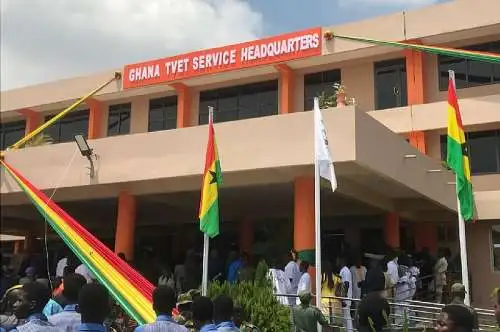The Foundation for Security Development in Africa (FOSDA) has observed that programmes introduced by government to transform the Technical Vocational Education and Training (TVET) system in the country lack accountability and transparency.
The foundation indicated that though government’s stated investment in the sector is laudable, proper accountability and transparency are required to fully harness the impact.
In 2021, government indicated that a total of US$1billion had been spent on the reformation process spread across areas such as Investment in infrastructure to increase access and improve quality; Construction of 32 new state-of-the-art TVET Centres of Excellence- two for each region; development of Education Regulatory Bodies Act 1023; establishment of the TVET Service under Pre-Tertiary Education Act 1049; and developed a national apprenticeship policy.
Other initiatives covered include conducting a skills-gap analysis and audit in 10 skill areas; improving quality TVET delivery through accreditation of 146 training providers to implement a competency-based training and digitised registration and accreditation system; establishing the Akenten Appiah-Menka University for Skills Training and Entrepreneurial Development; and joining the World Skills International as its 81st member among others.
However, there appears to be an over-abundance of knowledge on the benefits of TVET and what has been done to develop the TVET sector in Ghana despite the lack of accountability.
A step toward the direction of accountability will first of all enhance efficiency in the sector, improve trust and increase citizens’ and stakeholders’ interest in the sector through demonstrating evidence of the true transformational impact TVET is making or has made in the lives of youths.
Accountability also ensures value for money. This could help in overturning the possible violence and instabilities, and dispel the theory of threats to peace and security from youth bulges in Ghana.
It should therefore be a priority of government to move beyond providing information on progress made in the TVET sector, toward being more effective in terms of accounting for proper management of the resources that have been vested in their hands. Accountability in this sense should focus not only on how much has been spent under each investment area, but also on the status of progress, regional and district distribution of infrastructure, target beneficiaries, and the transformational effects arising from the investments made.
“But in the context of good governance, comprehensive and often updated financial and outcomes data are crucial for tracking, reporting and evaluating Ghana’s TVET reformation progress as well as progress toward the Sustainable Development Goals (SDGs), Africa’s Agenda 2063 and even the ECOWAS TVET Strategy for Skills Improvement and Employability (ETSSIE),” stated FOSDA.
TVET, with a principal objective to train young people and prepare them for the labour market, has been confronted with challenges such as revolutions in technical skills and innovations in science and technology – as well as labour market needs requiring an upgrade of the training system to match up. However, without transparency and accountability, the upgrade will yield limited results.
According to FOSDA, several countries are in the process of reforming their education systems to train the youth not only to meet national demands, but also regional and even international market needs. Ghana is not an exception, but unfortunately accountability and transparency have not been respected.
In Africa, and Ghana in particular, TVET has been identified as a critical tool to address youth unemployment and partly contain instability – especially considering the rising youth population over the last decade.










